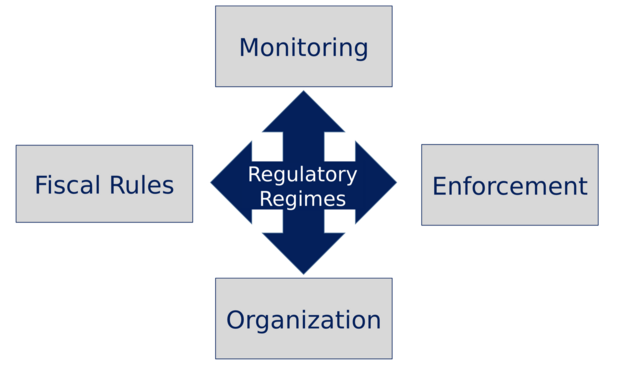The regulation of local government finance is a multi-level governance task that any country needs to address to guarantee local
government´s long-term functionality.
We suggest that the language and analytical perspective of regulation points at key factors in the design and operation of financial supervisory regimes that can usefully inform the discussion of conditions for success and failure. “Regulation” means the intentional use of state authority to affect, in our field, local governments budgeting. Consequently, regulation is naturally controversial and a political issue.
Regulation combines four main aspects: setting standards, monitor compliance, enforce rules, set up an administrative structure. In our field of interest, fiscal rules are the standards to be set. We focus on balanced budget and debt rules. Any fiscal rule is useless if nobody monitors compliance and enforces existing rules. This administrative structure of authorities might be a central or a decentral one. Each alternative showing advantages and disadvantages. Those authorities need sound information on enforcement and have to practice forms of monitoring, which are manifold, too. Finally, states cannot trust in rule implementation but need to have procedures of enforcement at hand.
Those four components of regulatory regimes are separate to decide, but their functioning is interdependent. Therefore, we take a regime perspective on regulation when analysing these aspects in combination. We want to understand systematically the mechanisms of national regimes, their evolvement and underlying conditions.
In a second step, we discuss regulatory limitations, any regime faces. Such might be unintended consequences like overstressing regulators capacity, changing underlying worldviews or poor institutional design.



